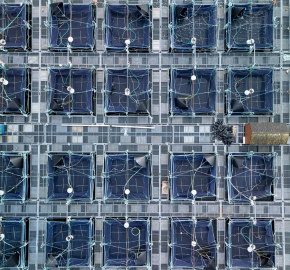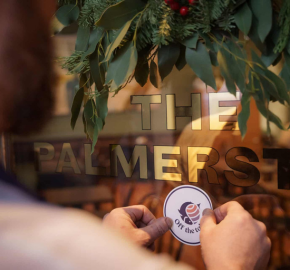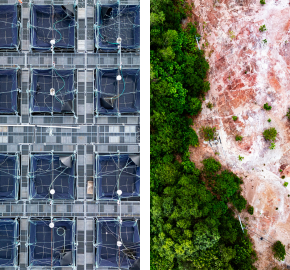Aquaculture Stewardship Council’s accreditation standards worthless for salmon farms
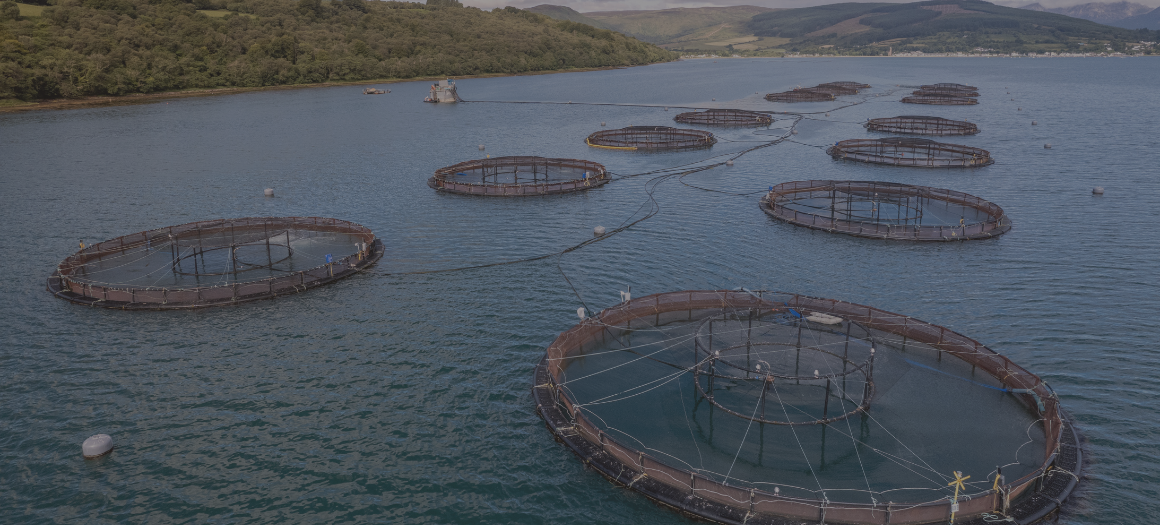
Sainsbury’s current advertising campaign boasts that it is “the first UK supermarket to have 100% of our fresh Scottish salmon range independently certified as responsibly sourced”. The supermarket also claims that “their fresh Scottish salmon comes with a sustainability promise”.
Yet, the accreditation body, the Aquaculture Stewardship Council (ASC), responsible for certifying their salmon has failed to take meaningful action over sea lice numbers that exceed advisory limits. This makes an absolute mockery of Sainsbury’s claims.
How do supermarkets try to substantiate claims of responsibly sourced farmed salmon?
The packaging of farmed salmon, as sold in UK supermarkets and indeed supermarkets elsewhere, is littered with the stamps or labels of a variety of accreditation bodies. These are intended to reassure consumers that the fish are reared according to the highest environmental and welfare standards.
The labels are designed to give consumers peace of mind – allowing them to consume their purchase in the knowledge that they are being responsible in their buying choices. Surely the RSPCA and other household names such as the Soil Association would never dream of endorsing anything that was not raised completely in line with these lofty standards – would they? Answers on a postcard!
The labels in question are awarded by accreditation bodies including the Aquaculture Stewardship Council (ASC).
What does it mean to be accredited by the Aquaculture Stewardship Council?
ASC accredited farms are expected to abide by strict standards to retain their accreditation status.
The UK CEO of the ASC has made bold claims to differentiate his organisation from other accreditation bodies. He maintains that the salmon farms they certify are better than the rest because they have “the strictest standards in the industry” and they require their certified salmon farmers “to meet all of our requirements”. But is this the case?
Certifiers of salmon farms have a duty to ensure that farms “behave” against their published standards. They also assume a duty to the consumer. Certifiers are expected to ensure that their farms deserve the accreditation status they are awarded. They should also ensure that no-one, not least the certifying body, is turning a blind eye to farms breaching the requirements in place.
For Sainsbury’s to retain any credibility for its sourcing policy, the supermarket needs consistently to include the exact farm of origin on all its packaging of farmed salmon. It also needs to challenge and require the ASC to ensure that their accreditation is in fact based on rigorous adherence to the “strictest standards”.
The impact of not meeting accreditation standards
The survival of wild salmon and sea trout is compromised by their interaction with salmon farming. The main issue with this interaction is the spread of sea lice from salmon farms into open water where they infest wild fish.
Cages containing hundreds of thousands of farmed salmon create a rampant breeding reservoir for lice. Huge numbers of mobile lice larvae spread out into the local marine environment as a result. The consequences when wild salmon and sea trout smolts migrate from local rivers into this “sea lice soup” can be devastating.
As few as 11 lice can be fatal for wild smolts. The lice feed by grazing on the surface of the fish, eating the mucous and skin. Quite literally, the fish are eaten alive.
Minimising sea lice numbers to protect wild fish
It is vital that salmon farms minimise lice numbers to protect wild fish. The ASC requires farms to maintain on-farm lice levels at an average of 0.1 mature female sea lice per farmed fish “during and immediately prior to sensitive periods, particularly outmigration of wild juvenile salmon”.
The main “sensitive period” – immediately prior to and during the main wild smolt runs – is generally considered to be April to June. To its credit the ASC’s stipulation of 0.1 lice per farmed fish is more stringent than other industry advisory limits.
Do the ASC-accredited Scottish salmon farms adhere to their advisory limits?
Table 1 shows the officially published, and self-reported, average adult female lice numbers per fish on ASC-accredited farms (that were stocked) during the “sensitive period” in 2021. The data is taken from week 13 (commencing 29th March 2021) to week 26 (commencing 28th June 2021).
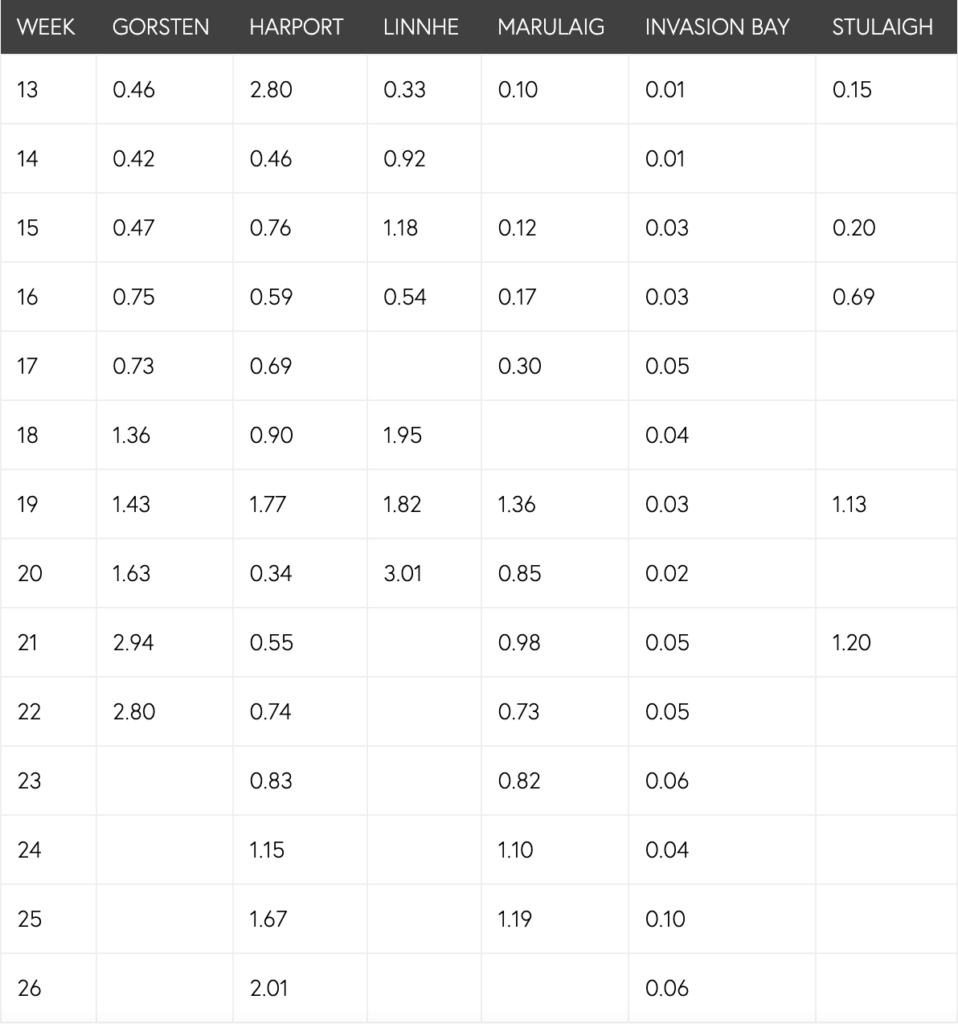
Table 1: self-reported average adult female lice numbers per fish. Note. Sequential blanks in table reflect no count/withdrawal period/harvesting out: Gorsten from week 23, Linnhe from week 21, Stulaigh from week 22. Other blanks (no counts) are due to “weather conditions”.
Just one farm (Invasion Bay) managed to keep sea lice numbers consistently within the ASC limit of 0.1. Out of the 61 weekly figures published for the other five farms, just one single count is within the limit – in fact the average (0.8) is eight times the limit.
These were not occasional breaches that were swiftly rectified. Rather the farm operators appeared to have had neither the ability or the inclination to maintain sea lice numbers within ASC limits. In the month or so prior to the withdrawal period/harvesting out lice numbers escalated dramatically with what appears at best to have been minimal or limited effort to control lice. Breaches were as high as 30 times the limit.
Why have farms in breach of advisory limits not lost their ASC status?
This seems an obvious question for those farms which systematically exceeded the sea limit for months on end.
According to the ASC website (mid-April 2022) all five of the farms exceeding lice limits are still “certified”. It is difficult to reach any other conclusion but that ASC’s mantra of having the “strictest standards” is a sham if serial breaches do not incur sanctions and the removal of ASC certification.
A global review of the Aquaculture Stewardship Council
In October 2018 SeaChoice, the highly respected seafood sustainability organisation, published a Global Review of the ASC’s salmon standard. In-depth analysis was conducted across 450 farm audits.The report uncovered “troubling trends in the application of the standard throughout the world” and “considerable concerns with the continued credibility and rigour of the scheme”.
The report concluded: “It is critical that eco-certifications are leading to genuine changes on the water and not simply rewarding business as usual. The salmon standard asserts that farms must meet 100% compliance to be certified. We found this to be misleading, because in practice this is not really the case. ASC sanctioned deviations from the standard and auditor rules mean few farms actually follow the standard as written”.
It seems that three years on nothing has changed. There is still an absence of meaningful sanctions for brazen failures to control sea lice numbers on Scottish salmon farms.
In fact, the ASC’s failure to enforce their published salmon standards mean consumers can have little to no confidence in the accreditation scheme, in particular that fish sold with their accreditation are raised to higher standards than the rest of the industry.
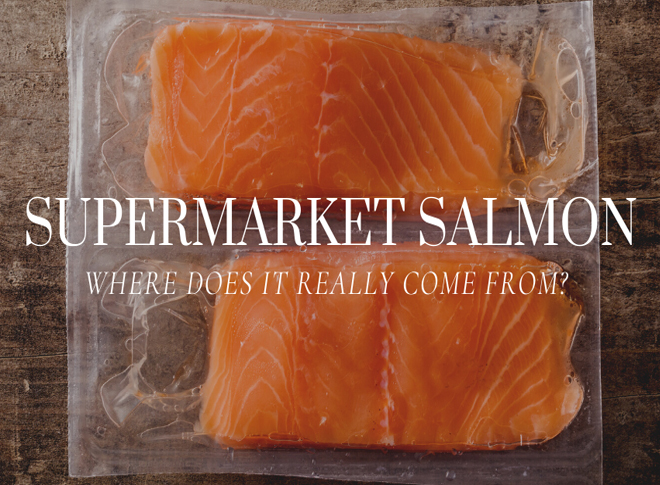
Next time you visit your local supermarket…
- Take a picture of the farmed salmon products for sale.
- Upload the picture on social media with the hashtag #FarmedFrom and tag @SalmonTroutCons as well as the supermarket where you took the picture.
- In your post ask the question: where does this actually come from?
- Send us the picture to info@wildfish.org and we’ll add it to our growing library of evidence.

